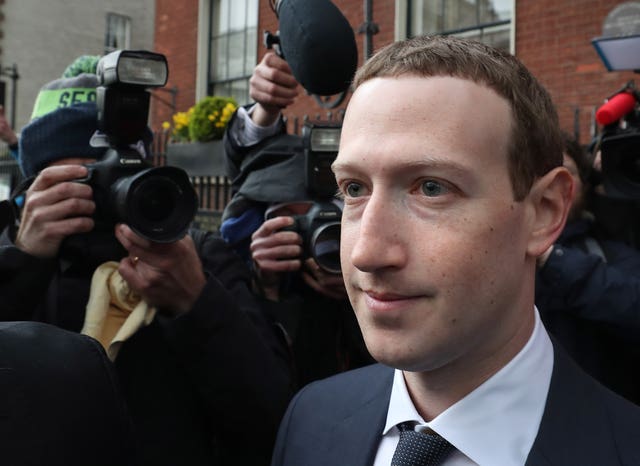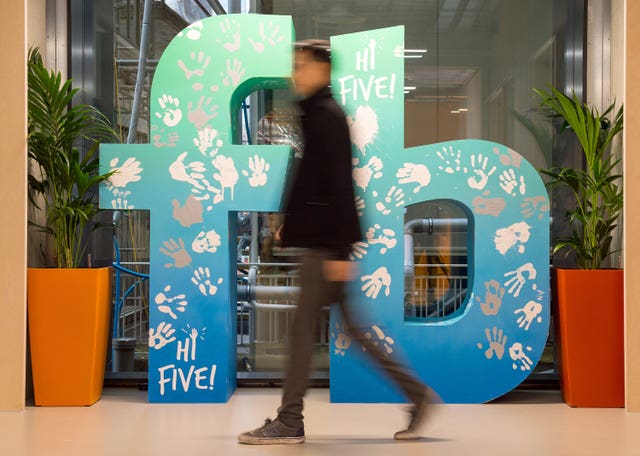
Richard Spurr 1am - 4am
8 December 2020, 18:14

Mark Zuckerberg raised concerns about the UK Government’s plans for internet regulation with then culture secretary Matt Hancock in 2018.
Senior MPs have raised concerns about a private meeting between Facebook chief Mark Zuckerberg and a Cabinet minister at a time the tech entrepreneur was refusing to appear before a Commons committee.
Mr Zuckerberg said he felt the UK Government was “anti-tech” and considered investing elsewhere in Europe, minutes of the meeting with then culture secretary Matt Hancock show.
Details of the 2018 meeting in Paris also show the social network’s co-founder was “worried about (the) tone” of the Government policy, including the Internet Safety Strategy which was drawn up to provide a “comprehensive response” to cyberbullying.

Julian Knight, chairman of the Commons Digital, Culture, Media and Sport (DCMS) Committee, said: “Two years ago, when Parliament was seeking to hold Facebook to account, we now know that the Government was holding its own private talks with Mark Zuckerberg.
“Numerous invitations to appear before our predecessor DCMS Committee in its investigation into fake news went unanswered by him.
“It is of concern, that as has been reported, he met the then DCMS secretary of state to express concerns about the tone of Government policy towards online regulation.
“We are looking forward to seeing the Government’s long-awaited online harms legislation in the coming weeks.”
Damian Collins, the former chairman of the committee, said: “The notes from this meeting clearly show that Mark Zuckerberg was running scared of the DCMS committee investigation on disinformation and fake news and was actively seeking to avoid being questioned by us about what he knew and when about the Cambridge Analytica scandal.”
2/4 The notes from this meeting clearly show that Mark Zuckerberg was running scared of the DCMS committee investigation on disinformation and fake news and was actively seeking to avoid being questioned by us about what he knew and when about the Cambridge Analytica scandal.
— Damian Collins (@DamianCollins) December 8, 2020
The meeting between Mr Zuckerberg and Mr Hancock took place in May 2018, and minutes were published following a two-year Freedom of Information battle by the Bureau of Investigative Journalism.
A week before the meeting at the VivaTech conference, Mr Hancock, then culture secretary, said new laws would be introduced to tackle the internet’s “wild west” and make Britain the “safest place in the world” to be online.
The minutes show although Mr Zuckerberg “supported UK Government policy (including regulation of the internet) he was worried about tone”.
They said: “Matt explained that he wanted to use the decision to legislate as a new beginning for UK Government relationships with the platforms – now the decision was public, the tone can shift from threatening regulation to encouraging collaborative working to ensure legislation is proportionate and innovation-friendly.
“He explained that he wanted increased dialogue with MZ so he can bring forward the message that he has support from Facebook at the highest level.”
The document also shows Facebook had to be “explicitly assure(d)… that we were after a positive meeting and wouldn’t simply demand MZ attended the select committee”.
Mr Zuckerberg declined several invitations to appear in front of MPs looking into fake news, instead sending other Facebook executives.
The minutes said: “MZ spoke of an anti-tech UK Government and said he jokes about adding the UK as the only country in the world he will not visit… MZ said the UK is the obvious territory in Europe for them to invest in, but they are now considering looking elsewhere.”
Facebook opened a new London office in December 2017, which made the city the firm’s largest engineering hub outside the US at the time.

In January 2020, Facebook chief operating officer Sheryl Sandberg announced the company would hire more staff to take its total UK employee numbers to 4,000.
A Facebook spokesman said: “Facebook has long said we need new regulations to set high standards across the internet. In fact last year Mark Zuckerberg called on governments to establish new rules around harmful content, privacy, data portability, and election integrity.
“The UK is our largest engineering hub outside of the US and just this year we created 1,000 new roles in the country.”